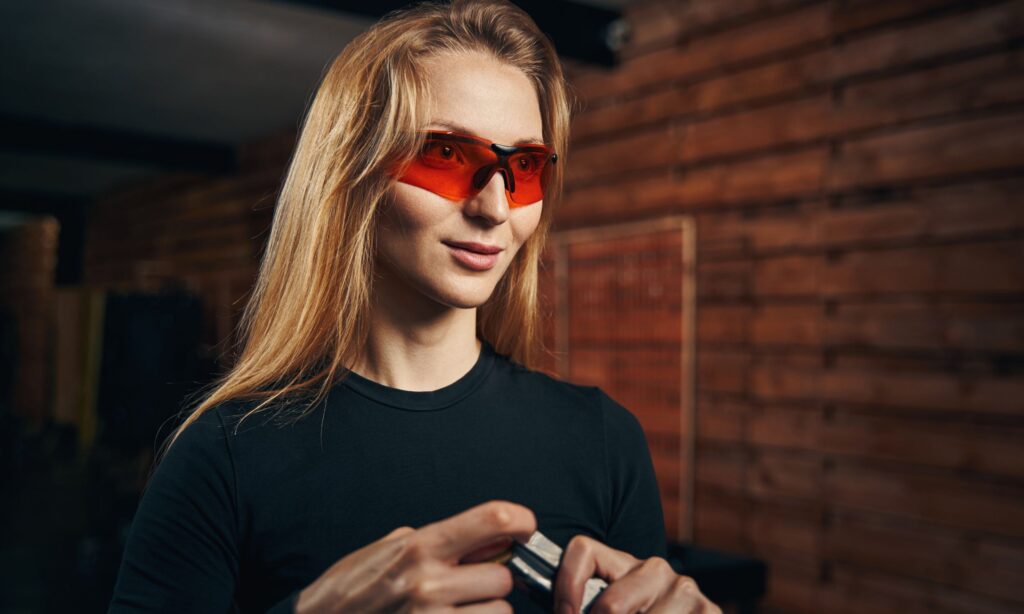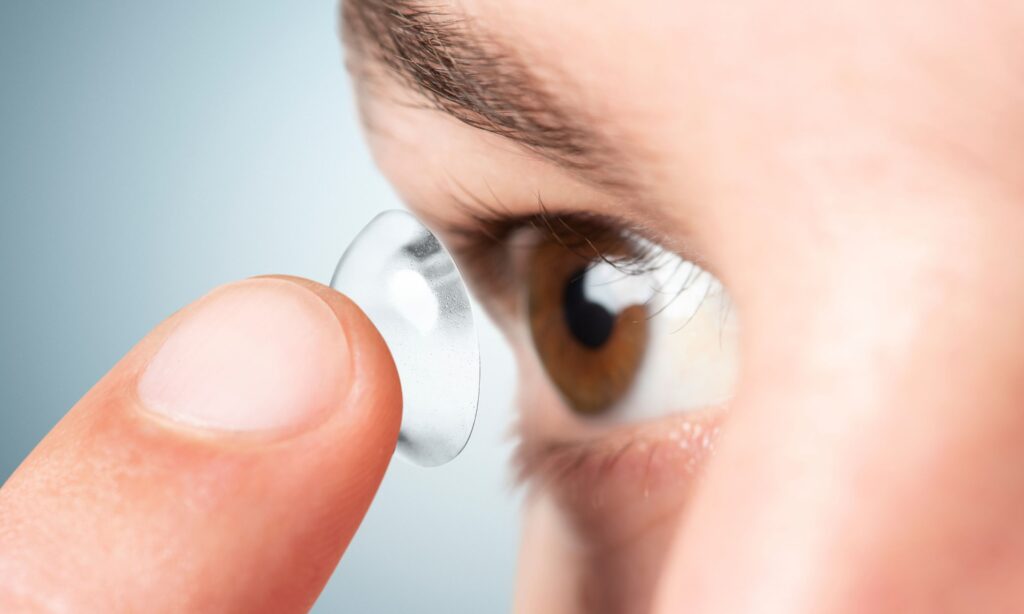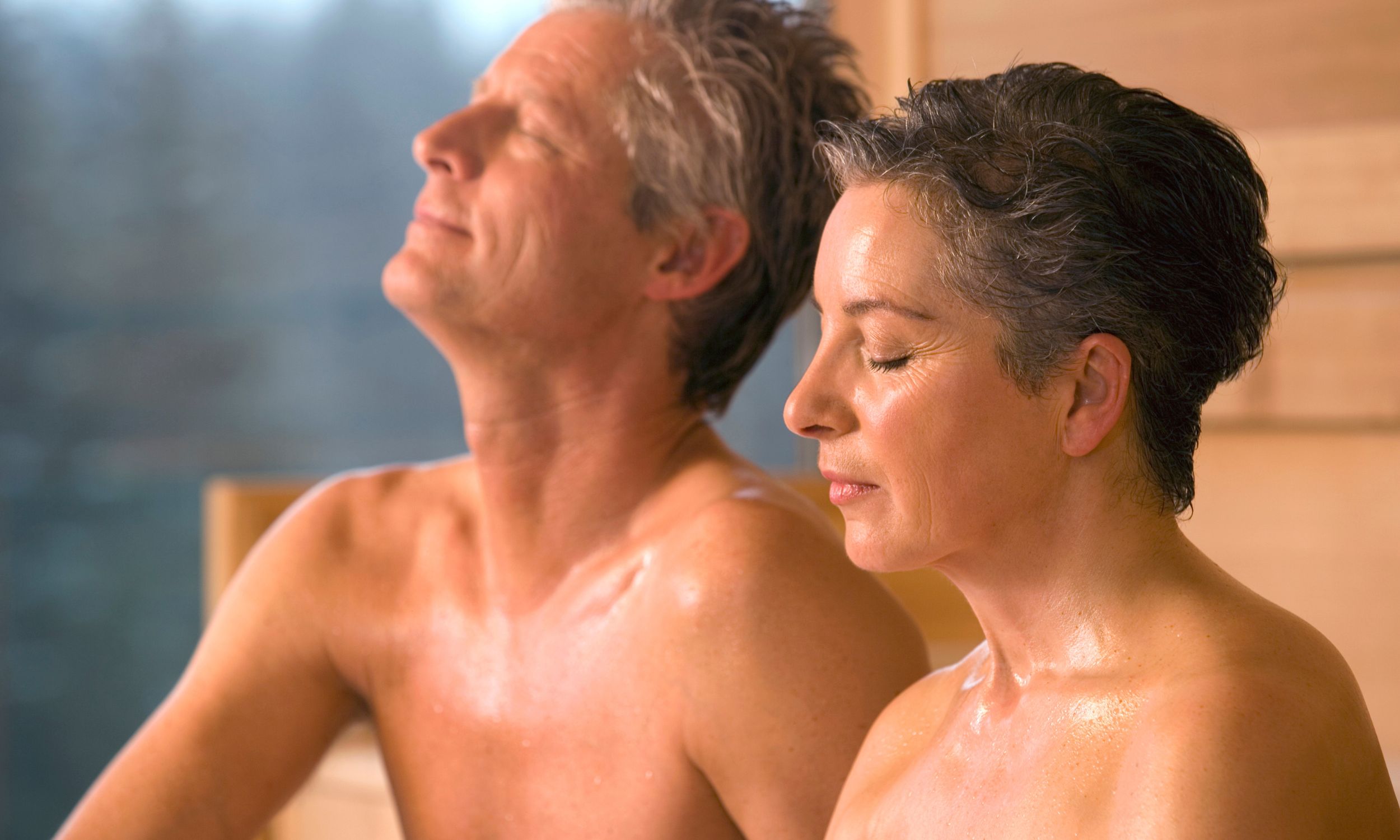If you have recently decided to start using a sauna or have purchased one for your home or business, then you may be wondering about how regular sauna use will affect your eyes.
There are a host of questions that will arise when beginning your sauna protocol. Common questions include how saunas will affect your vision, and how best to care for your eye health during a sauna session.
Here is a list of commonly asked questions:
- Do I Need to Wear Protective Goggles During a Sauna Session?
- Will Saunas Hurt My Vision?
- Can I Wear Contact Lenses In a Sauna?
- Can I Wear Glasses in a Sauna?
- Can Sauna Use Improve Vision?
This article will go over the answers to each of these questions in detail so that you can begin your sauna regime knowing exactly what to expect, and how to address any potential eye related issues.
Do I Need to Wear Protective Goggles or Eye Wear During a Sauna Session? If I Do Not, Will Saunas Hurt My Vision?
The answer to this question is simple, in most cases, no, you do not need to wear protective goggles during a sauna session. Saunas, if used according to designated instructions, will not damage the eyes. Depending on the type of sauna you are using, a traditional sauna versus an infrared sauna, your concerns may vary slightly about how best to protect your eyes.
Infrared sauna heaters use the invisible spectrum of infrared light to heat the sauna. It is for this reason that some individuals will ask if they need to wear protective eye coverings in the sauna as they would in a tanning bed. Tanning beds emit UV light frequency that is on the opposite end of the color light spectrum from infrared light, and it is important to protect your eyes from the fast moving frequencies of UV light. Infrared light, however, is on the opposite end of the color light spectrum and is transmitted using slow moving wavelengths that do not negatively impact the eyes.

In fact, some researchers suggest that infrared light may help to improve vision, or at least mood to some degree, and that individuals should be seeking it out in nature. (1) Infrared light can be found in its most intense amounts as the sun rises and sets. You will likely notice that at these times of day the sun does not cause the squinting action in the eyes, and this is in part due to the exposure of infrared light rays, rather than UV light, that is most intense during the middle of daylight hours.
Understanding the light spectrum will help establish a better understanding for how different light spectrums in isolation will affect the eyes. Certainly, if you plan on using an infrared sauna and would feel more comfortable wearing protective goggles or glasses, then do so for your own ease of mind. At present, there is no evidence to suggest that infrared light can damage the eyes, in fact, there is more data to suggest that red and infrared light may actually be helpful for eye health.
If you are using a traditional sauna, the high heat may make wearing anything over the eyes uncomfortable. In fact, if you wear contact lenses or glasses to improve vision it is a good idea to get into the habit of removing them before entering the sauna.
Can I Wear Contact Lenses in a Sauna?
According to eye care specialists, it is recommended that contact lenses not be worn during a sauna session. The high temperatures may negatively affect the contact lenses and potentially cause damage to the eyes. Furthermore, the intensity of sweating that occurs in the sauna (during a sauna session a person may lose roughly a pint of fluid in perspiration) creates a milieu of high humidity for the body. (2)

Consider a sauna session in the same way you would swimming. Would you wear contact lenses in the pool or ocean? If the answer is no, then the same rules will apply to sauna use. With the amount of sweat that may potentially drop into the eyes, and therefore the contact lenses, it is really best to forego the contact lenses during your sauna session. This will help ensure the safety of your eyes and contacts.
Can I wear Glasses In a Sauna?
It is possible to wear glasses into the sauna, however, the high heat may negatively impact the glasses depending on their material. The high heat of saunas may also damage the frames and the integrity of the lenses themselves. Additionally, the amount of sweating that occurs during a sauna session may make wearing glasses in the sauna almost impossible.
Your glasses will likely slip and slide right off of your nose during a sauna session. It is recommended that before entering the sauna you set the temperature, duration, color lights, towel placement, water bottle up before taking the glasses off. Once you are ready to enter the sauna, remove the glasses and leave them outside while you enjoy your session.
Can Sauna Use Improve Vision?
There are no studies or research to suggest that sauna use can directly cure or improve vision, nor is there any evidence that retinal and eye related disease, such as glaucoma, can be put into remission from sauna use. It is possible that sauna use (particularly infrared sauna) may, when used in conjunction with color light therapy, indirectly aid in overall neurological and visual cortex health.
Saunas are known to help in the relaxation mechanism to help the autonomic nervous system to easily move the toggle from sympathetic to parasympathetic dominance. Creating space for the body to move out of cortisol induced stress back into states of relaxation. This may help to improve many different health conditions, including those that affect vision. (3)

Furthermore, if you are using an infrared sauna in conjunction with the color light system, then you are likely going to benefit from sleep wake cycle balancing, melatonin, and therefore serotonin production, as well as fuel the health of the pineal and pituitary glands. While these functions may not directly improve vision, regular access to healthy light may help improve sleep and overall endocrine system function which may be correlated with ameliorated vision.
Dr. Andrew Huberman specializes in the ‘response and recovery of human visual cortex, oculomotor systems and related cognitive functions after acquired neurological disorders’ (4), and he highly recommends exposure to infrared light in nature both in the mornings and evenings to help regulate a number of autonomic functions. (6)
Furthermore, the same visual cortex specialist recommends regular (at least 3 times per week) sauna use to improve overall health in the following ways:
- Sauna for growth hormone release
- Stress response and overall health
- Improved mood
- Cardiovascular health (7)
Whether sauna use directly or indirectly improves vision specifically, there is certainly substantial evidence to suggest that regular sauna use may improve overall health, and therefore, potentially may have correlative benefits to the ocular cortex.
Saunas and Eye Health
Remember that if you plan on using a sauna that you should protect your contact lenses and glasses by not bringing them in the sauna with you or on your body. As of now, there is no evidence to suggest that saunas cause damage to the eyes or that any goggles or protective eyewear is needed during a sauna session of any kind.
If you plan to wear protective eyewear during your sauna session, please do so at your own risk. Take some time to better understand the light spectrum and the difference between how shorter wavelengths of light (measured in nanometers – like damaging UV light) affect the eyes versus longer wavelengths of light, such as infrared light to help ease your mind regarding infrared sauna use and the eyes.
Remember to always consult a specialist or professional if you have any questions or doubts about how best to use a sauna. They can also advise you on whether a sauna is the best activity for you and your health needs.
Saunas may not directly improve vision, but there is enough scientific data to suggest that through overall health improvements there may be a correlative link to improved ocular health, if not vision itself.
Sources Cited:
- https://www.hubermanlab.com/episode/the-science-of-vision-eye-health-and-seeing-better
- https://www.soothingcompany.com/blogs/news/can-i-wear-contact-lenses-in-a-sauna
- https://www.health.harvard.edu/staying-healthy/understanding-the-stress-response
- https://med.stanford.edu/profiles/andrew-huberman
- Probing the role of retinorecipient target cells in visual circuit regeneration Varadarajan, S., Dhande, O., Le, P., Huberman, A. ASSOC RESEARCH VISION OPHTHALMOLOGY INC. 2022
- https://www.hubermanlab.com/episode/using-light-sunlight-blue-light-and-red-light-to-optimize-health
- https://www.hubermanlab.com/newsletter/deliberate-heat-exposure-protocols-for-health-and-performance


